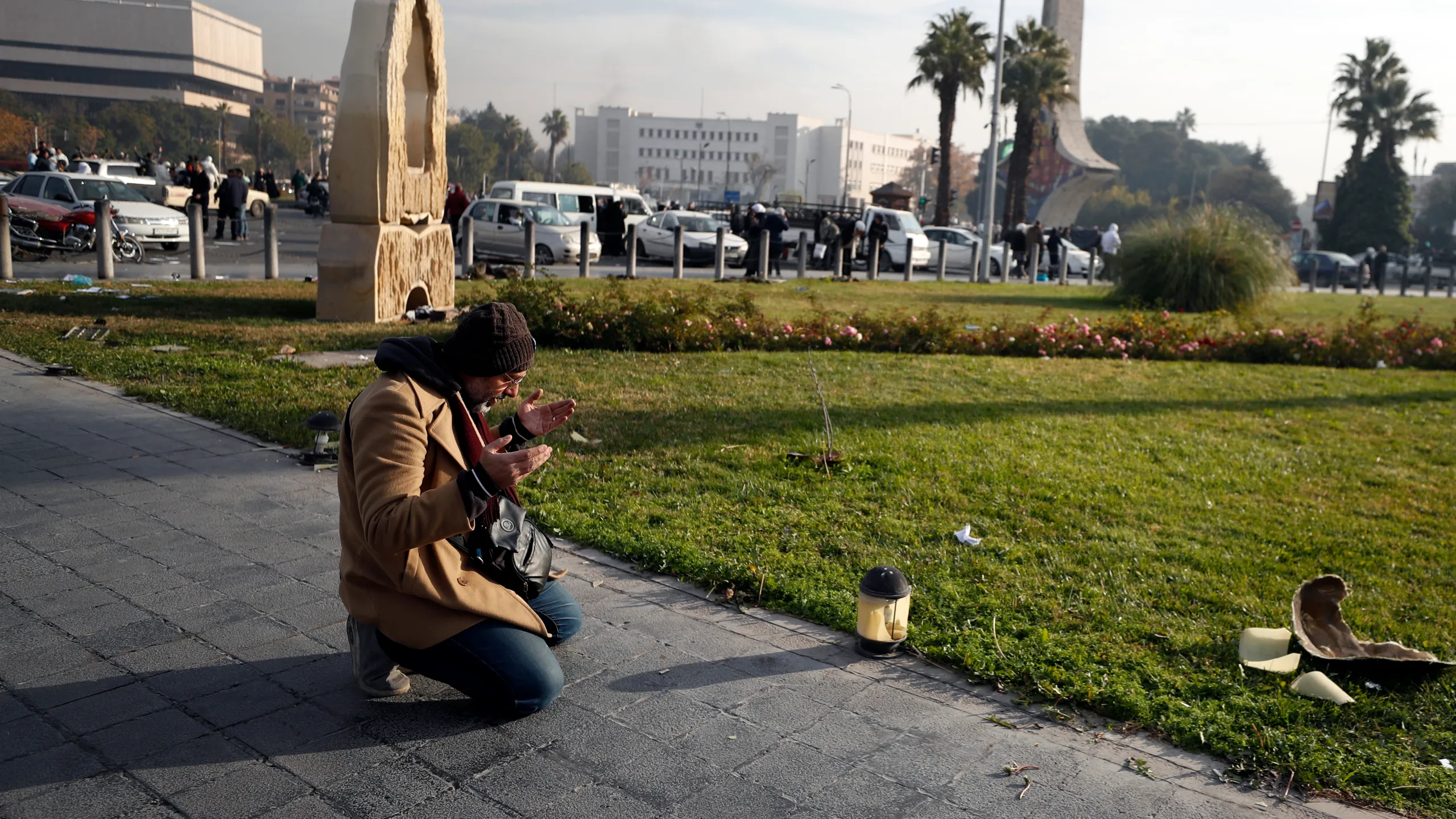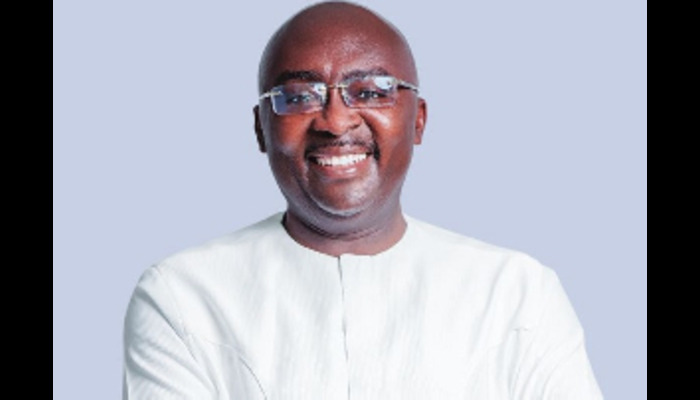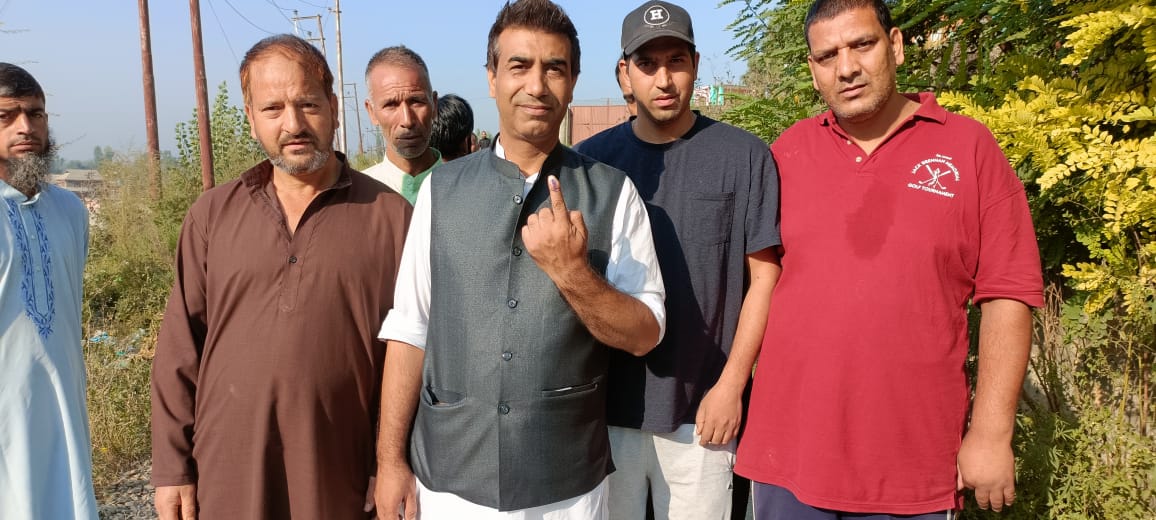GAZIANTEP, Turkey — For years, Sednaya Military Prison was known as one of the most feared places in Bashar al-Assad’s Syria. Its reputation as a “slaughterhouse” haunted many families who had relatives taken there, never to be heard from again. But on Sunday, everything changed. The prison gates were thrown open, its long-silent halls filled with the cries of families searching for the missing.
Videos shared on social media showed relatives rushing toward the prison, desperate to find their loved ones who had disappeared within its walls. For many, this was a long-awaited moment to either bring their family members home or finally know the painful truth.
The rapid advance of rebel forces — culminating in the fall of Damascus on Sunday — forced prison guards to abandon their posts across the country. As a result, Syrians are bracing for a flood of information, anxious to discover who among the 100,000 detainees still missing might be alive.
Once-imprisoned men, some barely recognizable due to exhaustion, stumbled into the night, their barefoot steps captured on video and broadcast across Syria. The release of these prisoners marked a turning point in the ongoing conflict, exposing the brutal realities of the Assad regime’s prison system.
While all factions in the Syrian conflict have been responsible for arrests, disappearances, and deaths in custody, the Syrian Network for Human Rights reports that up to 85 percent of these abuses occurred in government-controlled prisons. Inmates suffered unimaginable conditions, including systematic torture, starvation, and other forms of lethal abuse. Sednaya alone once held up to 20,000 prisoners, many of whom were executed or died from neglect, with guards enforcing a strict silence that added to the horrors.
Diab Serriya, a co-founder of the Association of Detainees and the Missing in Sednaya Prison and a former detainee, reported that up to 8,000 relatives were searching through the prison cells, while civil defense teams worked to investigate hidden chambers underground. Rebels, although still disorganized, were also involved in organizing searches, but no comprehensive lists had yet emerged.
The Syrian Civil Defense force, better known as the White Helmets, deployed multiple teams to Sednaya, including experts in wall-breaching and medical responders, to search for prisoners believed to still be alive in hidden cells.
In other parts of the country, rebel fighters used tools to break locks and open doors. Video footage showed prisoners from across Syria emerging from their years of captivity, some of whom had been missing for decades. Emotional reunions took place in cities across Syria, and among the millions of Syrian refugees abroad, families waited for news they had feared would never come.
The families of the disappeared have long described their loss as an open wound that could never heal. For many, memories of their loved ones are tied to the daily rhythms of life — like a man who turned on the radio to drown out his sorrow, only to be reminded of his missing wife when her favorite songs played.
In the southern Turkish city of Gaziantep, Jihad Dalain, 40, had been anxiously awaiting news of his youngest brother, Majd, arrested in the summer of 2023. Majd had been taken from their family home in Darayya, along with their elderly parents. While their mother and father were released after 100 days, Majd remained behind bars, eventually transferred to Adra Central Prison in Damascus. On Sunday, Jihad received a call from his brother, who simply said, “There’s something happening; I can’t talk much.” Moments later, Majd called the entire family at 9:22 a.m., saying, “I’m coming home.” It was the first time Jihad had seen his new sister-in-law, having married during Majd’s imprisonment.
Lists circulated on social media, naming those who had been freed, and people began to search for the missing, hoping for answers. Some posts featured photos of men who had been released from Sednaya, with phone numbers for loved ones to call. Others urged families to submit the names of the missing.
In the northern city of Azaz, Mayasa Marie, 40, was searching for her husband Mohammed, who had been arrested in 2012 for his anti-government activism. Despite hearing rumors that he had died in Sednaya, she held on to hope. Their son, who was only 6 when his father was taken, is now 18 and studying law, determined to fight for those unjustly detained. “We are finally free, but I need my husband back,” she said, recalling how her son and his uncle had gone to Sednaya but found no answers.
In Germany, Hussien Idris, 40, posted a message searching for his brother Ahmed, who he believes is still alive. “I will go back to find him myself,” he wrote, clinging to hope despite the overwhelming uncertainty.
For many, the flood of messages from loved ones provided little comfort. Some had been left off lists, others received only questions without answers.
Naila Alabbasi has spent 12 years without her sister Rania, a proud mother, dentist, and two-time national chess champion. In March 2013, members of Syria’s military intelligence arrested Rania, along with her husband and six children. Although rumors circulated that Rania had been seen near Damascus, Naila received no confirmation. In October, Naila’s brother found a letter Rania had written years before the uprising. As Naila read the letter, she felt as though she was connecting with her sister once again. But still, there was no word on her sister’s fate.
Naila, who now works as an obstetrician in Riyadh, stays up late watching the news, hoping for any sign that her sister or nieces and nephews may be alive. Watching the videos of the freed prisoners, Naila analyzed their faces, hoping to recognize someone, but also fearing that the children might have grown unrecognizable.
Despite the joy surrounding the releases, Naila’s voice cracked with sorrow as she realized that Rania was still missing. “We should be happy, we should be celebrating, but Rania is not here,” she said, her hope fading but still clinging to the possibility of reunion. “There’s no news, no news,” she repeated. “I’ve tried everyone.”




